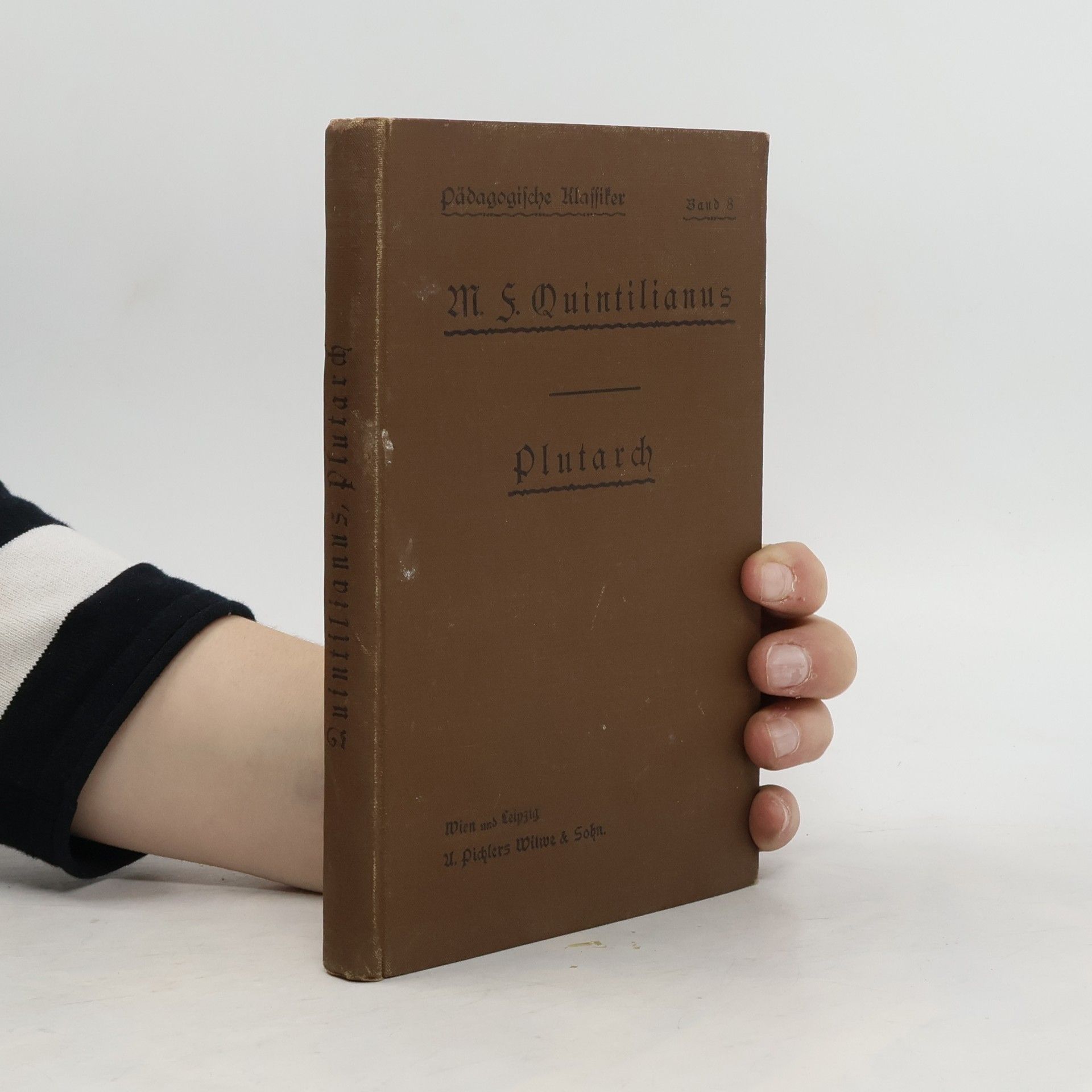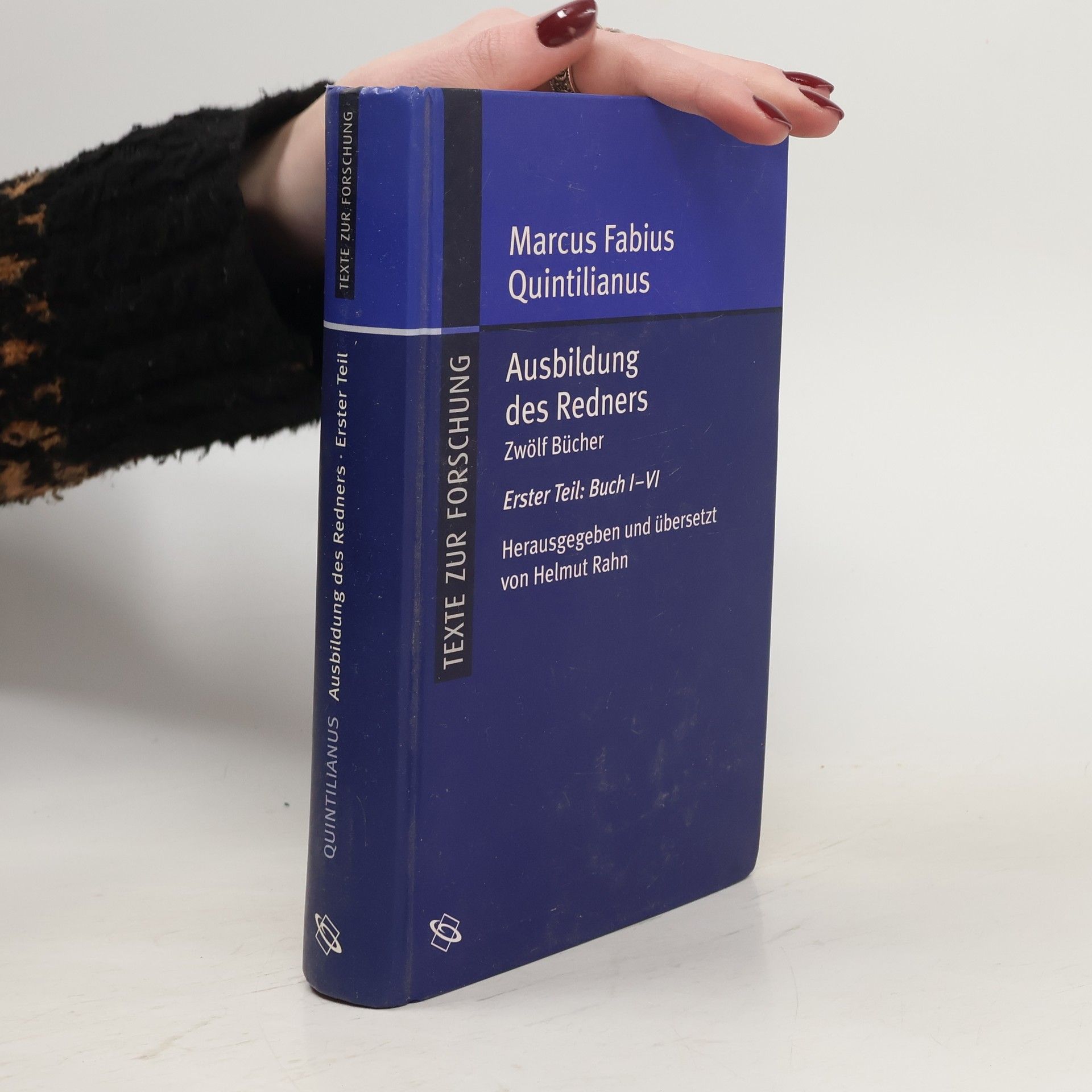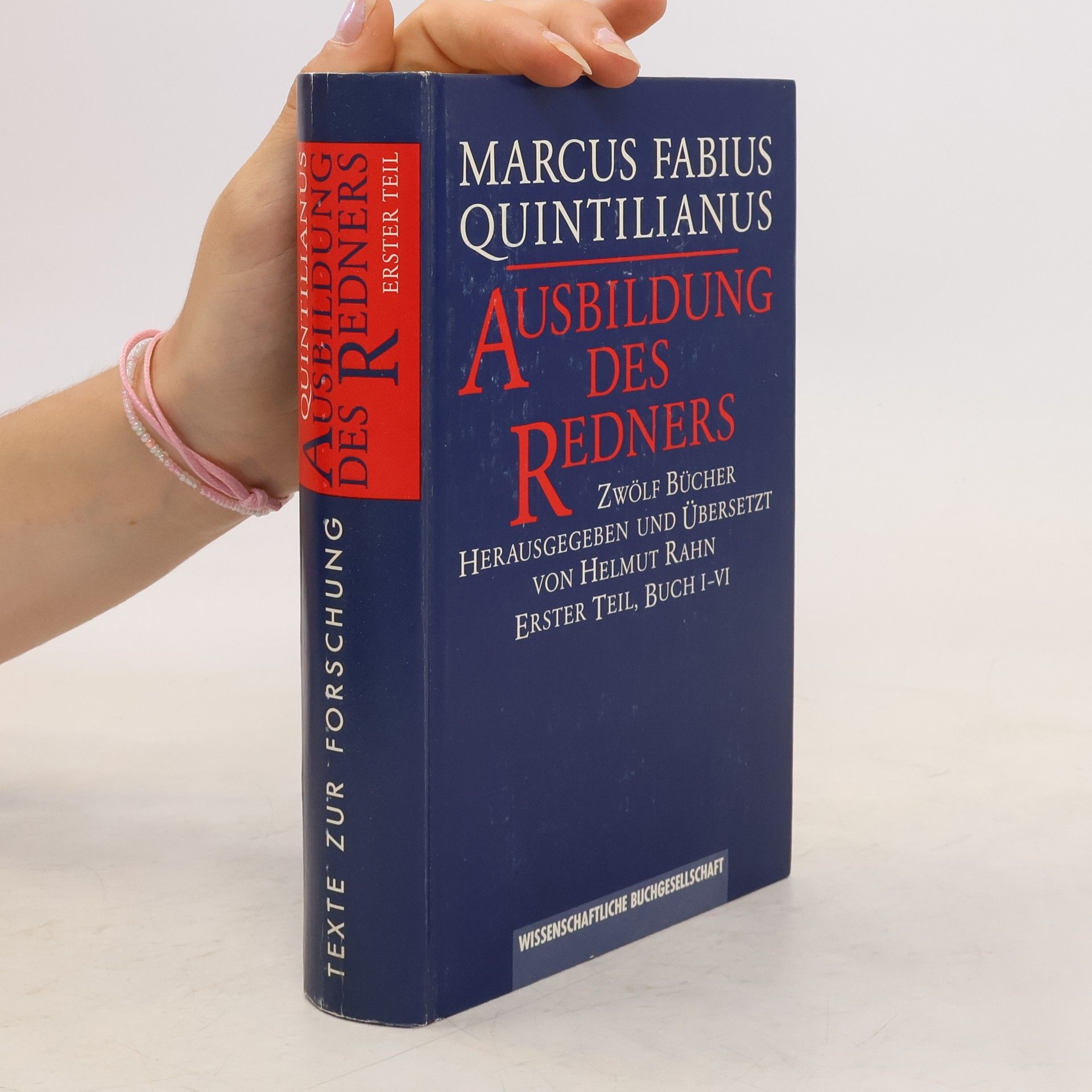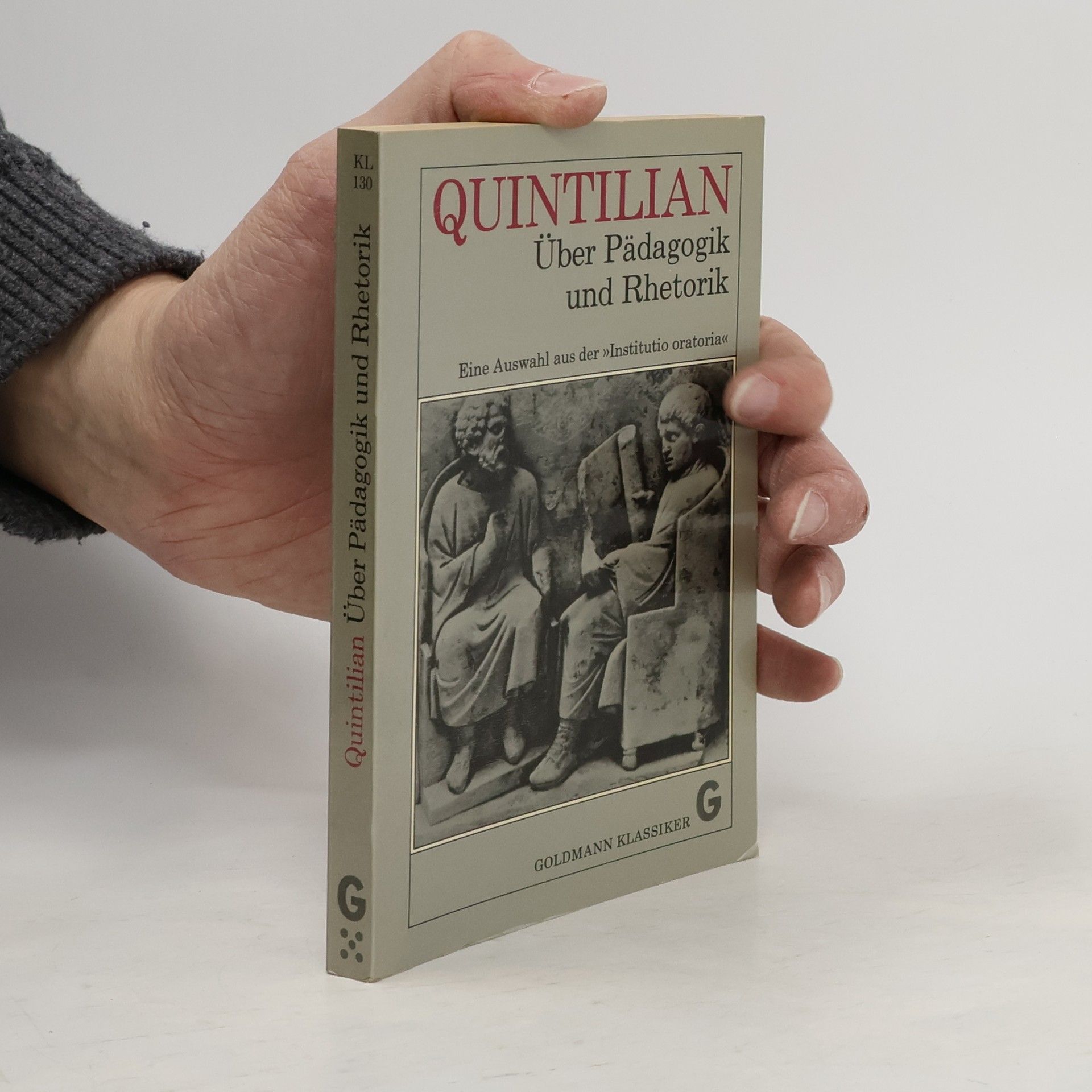The Major Declamations, attributed to Quintilian in antiquity, exemplify the final stage of Greco-Roman rhetorical training, in which students delivered speeches for the prosecution and defense at imaginary trials. A wide variety of fascinating ethical, social, and legal details animate the fictional world conjured up by these oratorical exercises.
Marcus Fabius Quintilianus Boeken


![Institutio oratoria X [decem]](https://rezised-images.knhbt.cz/1920x1920/53559352.jpg)
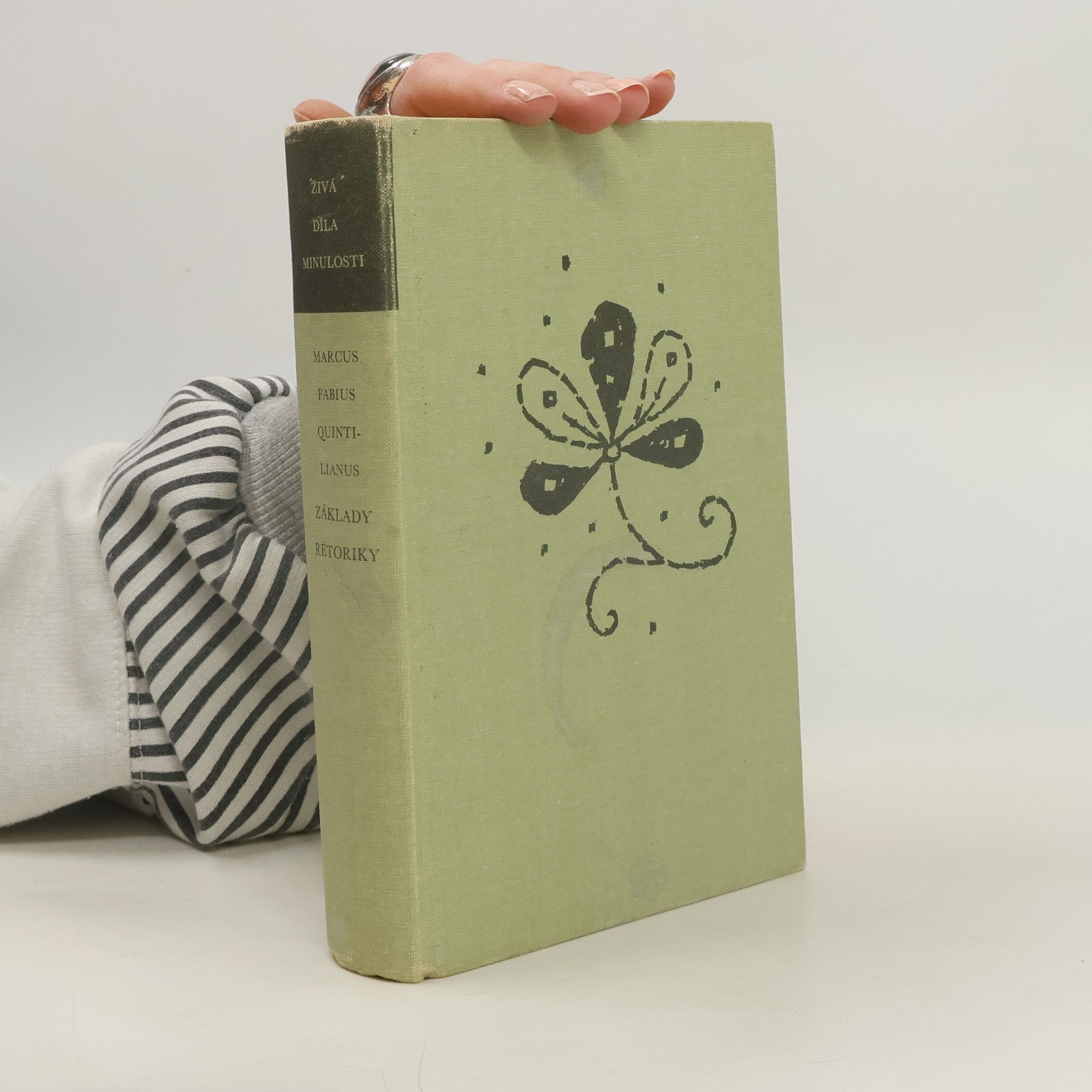



The Major Declamations, attributed to Quintilian in antiquity, exemplify the final stage of Greco-Roman rhetorical training, in which students delivered speeches for the prosecution and defense at imaginary trials. A wide variety of fascinating ethical, social, and legal details animate the fictional world conjured up by these oratorical exercises.
The Major Declamations, attributed to Quintilian in antiquity, exemplify the final stage of Greco-Roman rhetorical training, in which students delivered speeches for the prosecution and defense at imaginary trials. A wide variety of fascinating ethical, social, and legal details animate the fictional world conjured up by these oratorical exercises.
Institutio oratoria, pravděpodobně před rokem 90 – kniha pojednává o základech rétoriky a o výchově řečníků. Toto dílo bylo po pádu Říma ztraceno, znovu objeveno bylo v roce 1416, jeho objev znovu nastartoval rozvoj rétoriky. Nejdůležitějším a nejrozsáhlejším dílem bylo (Institutio oratoria) ve 12 knihách. Je to úplné shrnutí rétorického umění, kde také zavrhuje trhaný sloh filosofa Seneky a povznáší se vší úctou filozofa Cicerona jako starého a ve všem míru zachovávajícího řečníka.
Ausbildung des Redners. Zwölf Bücher
Zweiter Teil. Buch 7-12
